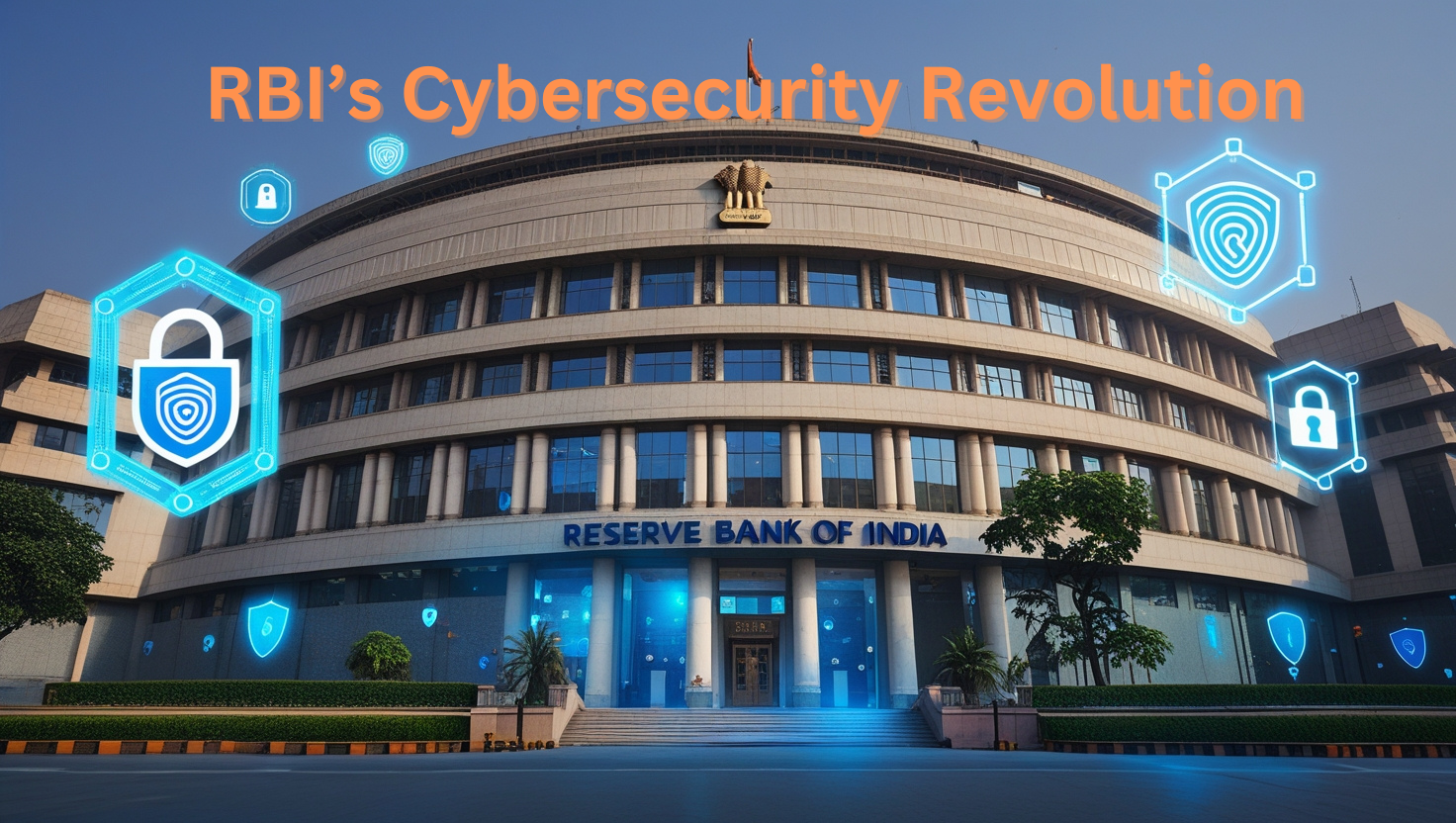The Reserve Bank of India (RBI) has recently issued a powerful cybersecurity mandate, urging banks to adopt both AI-aware defences and a zero-trust security model. This move is not just about regulation—it’s a wake-up call for the entire cybersecurity ecosystem in India.
For those working in or entering the world of cybersecurity, especially in a city like Bengaluru, this moment is a golden opportunity. Let’s unpack what the RBI’s announcement means for banks, businesses, and—most importantly—for your future in cybersecurity.
Why RBI’s New Guidelines Are a Cybersecurity Game Changer

Cyber threats in India are growing more sophisticated every day. Traditional defences are no longer enough. With financial institutions handling massive volumes of sensitive data, cybersecurity is now a core pillar of operational risk management.
The RBI’s new cybersecurity guidance mandates:
- A zero-trust architecture where nothing is trusted by default, even inside the network.
- AI-aware cybersecurity systems that recognise and respond to advanced, evolving threats.
- Tighter cybersecurity controls over third-party vendors to prevent systemic vulnerabilities.
These steps reflect the seriousness of today’s cybersecurity environment. Banks and other financial entities are now being pushed to view cybersecurity not as an IT issue, but as a critical business priority.
What Is Zero-Trust in Cybersecurity?

“Zero-trust” has become a buzzword in cybersecurity, but it’s far more than that—it’s a shift in mindset.
Under a zero-trust cybersecurity model:
- Every request is treated as suspicious until verified.
- Access is granted only after multiple levels of authentication.
- Systems are continuously monitored for abnormal behaviour using cybersecurity analytics tools.
For cybersecurity professionals, this creates demand for those skilled in network security, access control, and behavioural analytics. If you’re looking to build a career in cybersecurity, zero-trust is a skill set that’s now essential.
What Does “AI-Aware” Cybersecurity Mean?

AI isn’t just disrupting industries—it’s also transforming the cybersecurity landscape.
- On one hand, attackers are using AI to automate attacks, generate fake content, and discover vulnerabilities faster than ever.
- On the other hand, defenders are deploying AI-driven cybersecurity tools to detect threats, analyse behaviour, and respond in real time.
This AI arms race in cybersecurity is exactly why the RBI wants banks to adopt AI-aware defences. This includes anomaly detection, threat intelligence automation, and smart access controls. If you’re learning cybersecurity in Bengaluru or anywhere else in India, understanding how AI intersects with security is a massive competitive advantage.
Why This Impacts More Than Just Banks
Although the RBI’s announcement is aimed at banks, its ripple effect hits all industries. Cybersecurity expectations will rise across the board, especially for companies that:
- Handle financial data
- Provide cloud services
- Operate in fintech or SaaS
- Serve as third-party vendors to banks
This means cybersecurity specialists, auditors, compliance officers, and architects will be in demand not just in finance—but in healthcare, logistics, education, and tech too.
The Rise of Cybersecurity Jobs in India

The push toward zero-trust and AI-aware defences will drive major cybersecurity hiring. Roles in cybersecurity will grow across levels—from junior analysts to senior architects.
Here are some examples of where cybersecurity jobs are growing:
- Security Operations Centres (SOCs) monitoring AI-powered threats
- Threat intelligence teams analysing attack patterns
- Red teams simulating breaches in AI-driven environments
- Governance and compliance specialists ensuring regulations like RBI’s are followed
If you’re considering a future in cybersecurity, there has never been a better time to jump in.
Why Bengaluru Is at the Heart of India’s Cybersecurity Boom

Bengaluru is leading the cybersecurity transformation in India. With tech giants, start-ups, fintech players, and global banks having a presence in the city, demand for cybersecurity talent is higher here than anywhere else in the country.
- Companies like Infosys, Wipro, and IBM have large cybersecurity divisions in Bengaluru.
- Startups in Bengaluru are developing AI-powered cybersecurity solutions.
- Training institutes offer certification programmes in ethical hacking, network security, and AI security.
- Regular cybersecurity meetups, workshops, and hackathons help you build connections and skills.
If you’re based in Bengaluru and looking to enter cybersecurity, you’re in the right place at the right time.
Practical Steps to Start Your Cybersecurity Career

Not sure where to begin? Here’s a practical roadmap to get started in cybersecurity:
- Take an introductory course in cybersecurity, preferably one that includes hands-on labs and projects. check out Digived’s cybersecurity program
- Join online platforms that offer real-world challenges like TryHackMe or Hack The Box.
- Attend local events and Bengaluru cybersecurity meetups.
- Build a home lab to simulate zero-trust environments or test AI-based defence tools.
- Pursue certifications like CEH, CISSP, or OSCP to deepen your cybersecurity skills. check out Digived’s CEH certification
These steps will help you build a solid foundation and stand out in the growing cybersecurity job market.
How RBI’s Cybersecurity Push Creates Long-Term Career Value

This isn’t just a short-term adjustment. The RBI’s guidance signals a long-term shift toward stricter, smarter cybersecurity.
In the coming years, organisations will continue to:
- Invest in cybersecurity infrastructure
- Create new roles focused on AI threat defence
- Shift legacy systems into zero-trust frameworks
That means your investment in cybersecurity education today will pay off in the long run. Whether you’re a student, a working professional, or someone exploring a career switch—cybersecurity is a future-proof path.
Final Thoughts: A Cybersecurity Moment You Shouldn’t Miss

RBI’s message is loud and clear: cybersecurity is not optional anymore.
As banks evolve, as attackers become smarter, and as AI reshapes the battlefield, the need for skilled cybersecurity professionals is exploding.
If you’re in Bengaluru—or anywhere in India—and you’ve been wondering whether to get into cybersecurity, this is your moment. The tools are available. The opportunities are growing. And the industry needs you.
“Trust no network. Learn zero‑trust. Secure the AI‑powered future.”
If you are passionate about cybersecurity and Ethical hacking, this is the right time to start learning the relevant skills. Visit Digived Academy to learn more about our Cybersecurity Training programs and start your journey as cybersecurity professional today.
Frequently asked questions (FAQ’s):
Q1: Why is the RBI focused on cybersecurity now?
Because cyberattacks are getting smarter and more dangerous, especially with AI. The RBI wants banks to stay ahead of the curve by strengthening their cybersecurity.
Q2: What does zero-trust mean for cybersecurity teams?
It means they’ll need to rethink access, permissions, and monitoring—turning traditional cybersecurity models upside down.
Q3: Is AI helping or hurting cybersecurity?
Both. It’s making attacks faster and more convincing—but it’s also powering the next generation of cybersecurity tools.
Q4: Can I learn cybersecurity without a technical background?
Yes. Many cybersecurity roles are accessible with training, and some focus on policy, risk, or compliance instead of coding.
Q5: Where should I study cybersecurity in Bengaluru?
Look for well-reviewed institutions offering certifications like CEH, OSCP, or courses in AI-focused cybersecurity.
also read: Which is the best cybersecurity course in Bengaluru
Contact Us
For more information about our courses, schedules, and enrolment process, visit our website or contact us at.
Website: www.digived.academy
Email: admission@digived.academy
Phone: +91-9019299971



